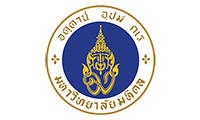What is One Health?
One Health is the collaborative effort of multiple disciplines working locally, nationally, and globally, to address critical challenges and attain optimal health for people, domestic animals, wildlife, and our environment. One Health Commission (http://www.onehealthcommission.org/)
One Health promotes coordinated, collaborative, cross-sectoral, and ‘whole-of-society’ approaches to health hazards
One Health: a concept that became an approach and then it is rapidly becoming an international movement based on cross-sectoral collaborations.
What is EcoHealth?
Ecosystem approaches to public health issues acknowledge the complex, systemic nature of public health and environmental issues, and the inadequacy of conventional methodologies for dealing with them. Dr. David Walter-Toews, University of Guelph
The Ecohealth approach focuses above all on the place of human beings within their environment. It recognizes that there are inextricable links between humans and their biophysical, social, and economic environments, and that these links are reflected in a population's state of health. International Development Research Centre (IDRC)
EcoHealth is a transdisciplinary research field that aims to improve the health of people, animals and ecosystems to address complex challenges facing our Planet.
EcoHealth emphasises understanding of social and ecological systems and drivers of social determinants of health and ecosystem changes holisticall
Ecosystem approaches to human health (Ecohealth) represents a set of methodological and conceptual approaches. These approaches seek to better comprehend the complex interactions between the various component of the ecosystem (biophysical, socioeconomic and cultural), and how these interactions influence the prevalence of health problems and well-being among human populations. They also seek to identify ecosystem management strategies that contribute to improving the health and living conditions of human populations and the sustainability of the ecosystem in which they live (Forget and Lebel, 2001).
What are the key differences between One Health and EcoHealth?
EcoHealth has developed within the same family of holistic approaches as One Health. Both approaches, One Health and EcoHealth, can help us to better understand complex connections.
Although One Health and EcoHealth are closely related, they have arisen from different traditions and can also be applied in very different trajectories. One Health examines issues at the intersection of human, animal and environmental health, and is “dedicated to improving the lives of all species - human and animal - through the integration of human medicine, veterinary medicine and environmental science”.
In comparison to One Health, EcoHealth adopts a much broader perspective of health and is informed by diverse fields including natural resource management, health geography, systems sciences, philosophy and public health. EcoHealth has also been heavily shaped by the sustainable development movement of the 1980s. The seminal Brundtland Report of 1987 espoused key principles such as social justice, participation, and equity – both inter-generational and intra-generational. These principles and the holistic spirit of the Brundtland Report, inform much of current EcoHealth thinking and practice.
Ecohealth is the transdisciplinary and systems study of dynamic relationships and interactions among animals, ecosystems and human health. It provides both a theoretical framework for understanding the changing “landscape of health” as well as a practical approach for identifying solutions to manage interlinked ecosystem and health problems. For developing countries, the process of embedding the study of socio-ecological systems into health and education requires competent scientists, strong leadership, and an enabling environment that will allow research communities to grow (FBLI).
What is agricultural intensification?
- Intensification of agriculture is currently characterised by high inputs of capital, labour, high yielding crop varieties, irrigation, increasing mechanisation or the extensive use of technologies such as pesticides and fertilisers relative to land area to ensure increases in food production (The World Bank Agriculture and Rural Development Department, 2009).
Agricultural intensification – defined as an increase in the productivity of crops and livestock per unit of input. In SEA, crop intensification started in the 1960s with the advent of the “Green Revolution,” which promoted the widespread use of high yielding varieties requiring very high inputs of inorganic fertilizers, pesticides, herbicides, fungicides and water to boost productivity. This process has contributed substantially to meeting the growing demand for food over the past half century. But it has also led to serious environmental and human health consequences (FBLI).












